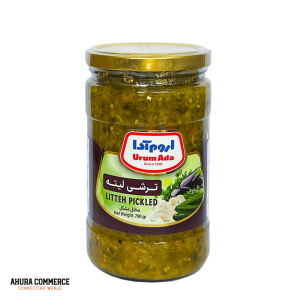Categories
- Agriculture
- Food and Beverage
- Cars and auto parts
- Electrics and Electronics
- Exchange
- Fashion and accessories
- Metallurgy Rubber & Plastics
- International Transportation
- Weaving, textiles
- Building Construction
- Chemicals
- Dairy
- Fruits and Vegetables
- Nuts and Spices
- Gifts and Toys
- Health and Beauty
- Home Appliances
- Livestock and poultry
- Machinery and Tools
- Row materials
- Office appliances
- Customs Clearance
- Home
- Nuts and Spices
- Almonds for Export to India
Almonds for Export to India
Description
Almonds for Export to India from Iran
Almonds for Export to India
As global demand for nutritious and healthy snacks continues to soar, the opportunity for exporting almonds to India has become increasingly attractive for businesses worldwide. India is one of the largest markets for almonds, driven by a rising health consciousness and a growing preference for natural, wholesome food products. This article will delve into the lucrative prospects, market dynamics, and essential guidelines for exporting almonds to India.
The Rising Demand for Almonds in India
India's population, exceeding 1.4 billion, is becoming more health-aware, resulting in a significant surge in demand for nuts and dried fruits. Among these, almonds hold a prime position due to their numerous health benefits, including their role in heart health, weight management, and skin nourishment. The Indian consumers are not only turning to almonds for snacking but are also incorporating them into their culinary practices, from sweet dishes to savory recipes.
Almonds for export to India cater to a diverse range of consumer preferences. The popularity of almonds is especially notable during festive seasons, where they are used in traditional sweets and dishes. This consistent demand makes the Indian market a promising target for exporters. Understanding this market trend is crucial for those looking to venture into exporting almonds to India.
Conducting Market Research: Key to Success
Before diving into the process of exporting almonds to India, conducting comprehensive market research is vital. This research should involve analyzing consumer preferences, pricing trends, and competitor analysis. Various factors, including regional preferences for different almond preparations—such as whole, sliced, or ground—can significantly influence the exporting strategy.
Identifying the right distribution channels is equally important. In India, almonds can be found in various outlets, including supermarkets, local grocery stores, online platforms, and health-food stores. By strategically placing products in these diverse channels, exporters can maximize their reach and visibility when exporting almonds to India.
Regulatory Standards and Compliance
Navigating the regulatory landscape is critical when exporting almonds to India. The country has specific import regulations and quality standards that must be adhered to for the smooth entry of products. Ensuring compliance with the Food Safety and Standards Authority of India (FSSAI) and obtaining necessary certifications will not only facilitate the import process but also enhance the product’s credibility in the eyes of Indian consumers.
Additionally, understanding labeling requirements and maximum residue limits for pesticides is essential for maintaining compliance when exporting almonds to India. Aligning with local partners or agents who are well-versed in the Indian import process can simplify these complexities and ensure a seamless experience.
Quality Assurance and Packaging
Quality is a non-negotiable factor in the food export business, especially when exporting almonds to India. Maintaining high-quality standards throughout the production, processing, and packaging stages ensures that the almonds arrive in optimal condition for consumers. Implementing stringent quality control measures can significantly enhance the trust and loyalty of both distributors and consumers.
Packaging plays a significant role in preserving the freshness and flavor of almonds, as well as attracting consumers. Sustainable and aesthetically appealing packaging will resonate with the eco-conscious Indian market. Properly designed packaging can communicate vital information about the product, including nutritional benefits, usage suggestions, and origin, thus enriching the overall consumer experience when importing almonds for export to India.
Marketing Strategies to Capture the Indian Market
Successfully marketing almonds in India requires a tailored approach that resonates with local customs and preferences. Highlighting the numerous health benefits, versatility, and cultural significance of almonds can engage consumers effectively. For instance, emphasizing their role in traditional Indian sweets during festive seasons can enhance their appeal.
Participating in trade fairs and food exhibitions offers exporters valuable exposure, allowing them to connect with potential distributors and retailers. These events can serve as platforms to showcase almond varieties, packaging options, and potential uses in local cuisine.
Digital marketing strategies can also complement traditional marketing efforts. Social media platforms have become a powerful means of reaching Indian consumers, who are increasingly turning to online shopping. Engaging consumers with nutritional tips, recipes, and informative content can strengthen brand loyalty, making almonds for export to India a viable choice.
Logistics and Distribution Framework
An effective logistics plan is crucial for the successful export of almonds to India. Collaborating with reliable shipping solutions can help ensure that the almonds reach their destination unspoiled and on time. Understanding customs processes and potential tariffs or duties is also important for maintaining budget control throughout the exporting process.
Building a strong distribution network within India will facilitate smooth sales and ensure that the product is easily accessible to consumers. Whether it’s through partnerships with established distributors or sales through e-commerce platforms, a solid network will enhance product visibility when exporting almonds to India.
Conclusion
Exporting almonds to India is a venture rich with potential for growth and profitability. By conducting thorough market research, adhering to regulatory standards, ensuring quality, and establishing robust marketing strategies, exporters can successfully enter the Indian market. The rising demand for healthy snacking options combined with the cultural relevance of almonds positions them as an exceptional product for export.
As consumer preferences continue to evolve, seizing the opportunity to export almonds to India can lead to sustainable business growth and a significant presence in the international food market. Embrace this opportunity and discover the immense possibilities that await in exporting almonds to India!
Location
Almonds for Export to India

Ahura Commerce facilitates seamless international trade. Our platform empowers businesses of all sizes to navigate import/export regulations, connect with global partners, and optimize logistics. Leverage our expertise and network to achieve sustainable growth in today's interconnected marketplace.

















































































































